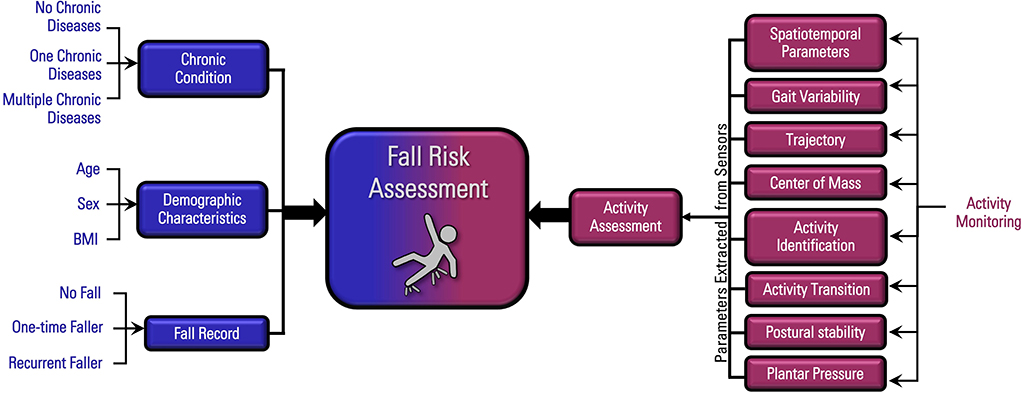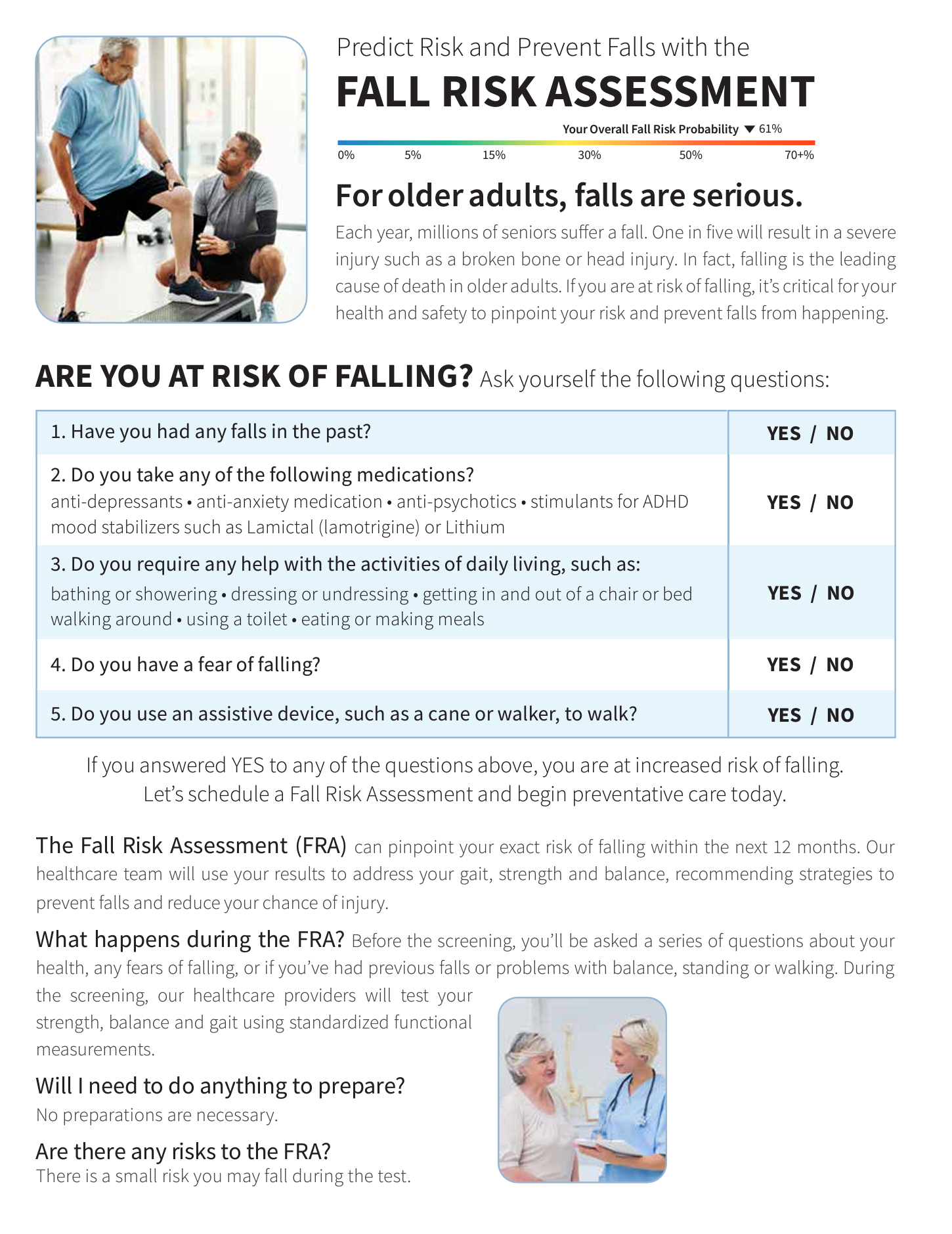Dementia Fall Risk for Dummies
Dementia Fall Risk for Dummies
Blog Article
The Dementia Fall Risk PDFs
Table of ContentsSome Of Dementia Fall RiskNot known Factual Statements About Dementia Fall Risk About Dementia Fall RiskFacts About Dementia Fall Risk Revealed10 Simple Techniques For Dementia Fall Risk
The FRAT has three areas: drop risk standing, risk aspect list, and action strategy. A Loss Risk Standing consists of data concerning background of recent falls, drugs, psychological and cognitive condition of the person - Dementia Fall Risk.If the client scores on a danger variable, the corresponding number of points are counted to the client's loss risk rating in the box to the far. If a patient's fall threat score completes five or greater, the individual is at high risk for drops. If the person scores only four points or reduced, they are still at some risk of falling, and the registered nurse needs to utilize their finest clinical assessment to handle all loss threat elements as part of an all natural treatment plan.
These typical strategies, in basic, help create a safe environment that minimizes unintentional falls and delineates core preventive steps for all people. Signs are important for clients at risk for drops.
An Unbiased View of Dementia Fall Risk
Wristbands must consist of the person's last and first name, date of birth, and NHS number in the UK. Just red color needs to be utilized to indicate unique individual condition.
Things that are as well far might need the individual to connect or ambulate unnecessarily and can potentially be a danger or contribute to drops. Assists avoid the patient from heading out of bed without any assistance. Nurses reply to fallers' call lights quicker than they do to lights initiated by non-fallers.
Aesthetic disability can considerably trigger falls. Hip pads, when worn appropriately, may lower a hip fracture when fall takes place. Keeping the beds closer to the floor reduces the danger of falls and significant injury. Positioning the cushion on the floor considerably reduces fall threat in some medical care setups. Reduced beds are designed to minimize the distance an individual drops after moving out of bed.
The Buzz on Dementia Fall Risk
Individuals that are tall and with weak leg muscle mass who try to remain on the bed from a standing placement are likely to fall onto the bed since it's also low for them to decrease themselves safely. Likewise, if a high client attempts to stand up from a low bed without aid, the patient is likely to fall back down onto the bed or miss out on the bed and drop onto the flooring.
They're created to advertise prompt rescue, not to prevent falls from bed. Apart from bed alarm systems, raised supervision for high-risk individuals likewise might aid avoid drops.

Clients find out with an evasion gait boost loss opportunities considerably. To reduce autumn risk, shoes ought to be with a little to no heel, slim soles with slip-resistant step, and support the ankles.
Dementia Fall Risk Can Be Fun For Anyone
Individuals, particularly older grownups, have actually minimized aesthetic capability. Lighting an unknown atmosphere assists boost presence if the person have to obtain up in the evening. In a research, homes with adequate illumination report less drops (Ramulu et al., 2021). Renovation in illumination in your home might decrease autumn rates in older grownups (Dementia Fall Risk). The use of gait belts by all health and wellness care companies can advertise security when helping individuals with transfers from bed to chair.

Caretakers work for assuring a secure, safeguarded, and safe environment. Nevertheless, researches showed really low-certainty evidence that sitters decrease loss danger in acute care medical facilities and just moderate-certainty that alternatives like video monitoring can decrease caretaker use without boosting autumn threat, recommending that sitters are not as beneficial as at first thought (Greely et al., 2020).
The 45-Second Trick For Dementia Fall Risk

Increased physical conditioning decreases the threat for drops and restricts injury that is suffered when autumn transpires. Land and water-based workout programs might be in a similar way helpful on balance and gait and thus decrease the threat for falls. Water workout might contribute a positive benefit on balance and stride for females 65 years and older.
Chair Surge Exercise is a simple sit-to-stand exercise that assists strengthen the muscular tissues in the thighs and you could try these out buttocks and boosts flexibility and freedom. The goal is to do Chair Surge exercises without using hands as the client ends up being stronger. See resources section for a comprehensive guideline on how to perform Chair Rise workout.
Report this page